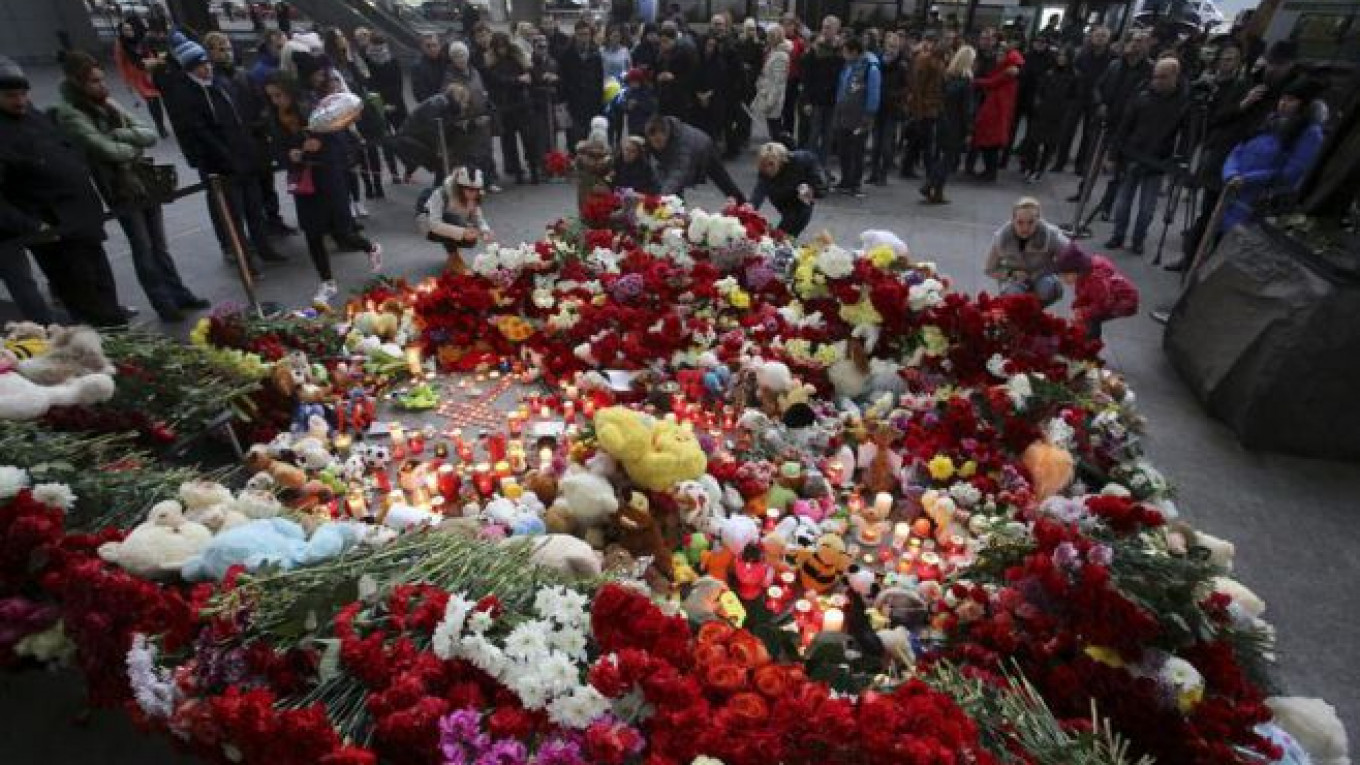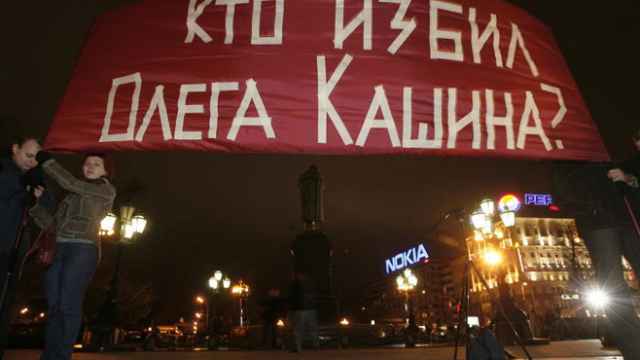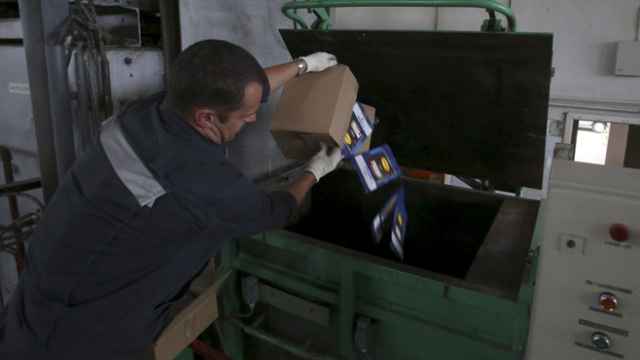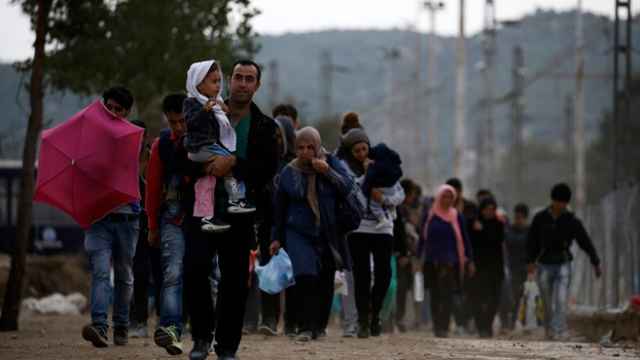It's odd, how grief can unite people better than joy, at times. Since the horrifying A321 disaster over Egypt's Sinai peninsula, it's been heartening to see Russians taking care of one another, even if the sight of it is liable to make one break down in tears.
From a beautiful memorial gathering in the heart of St. Petersburg to a Moscow region boarding school offering free placement for any children orphaned by the crash, from television presenters turning dignified to people reaching out to Ukrainians for bringing flowers to the Russian Embassy in Kiev with words of thanks (an unexpected situation from all angles, at least in the current geopolitical climate), Russians have come together to mourn, pray, and reflect on life and its often devastating unpredictability.
Emotional vulnerability is an underrated state of being. We think we are at our best when we are confident and strong. But emotional crises can sometimes foster a feeling of community in a way that, say, euphoria, cannot, if only because they make people connect to each other on a deeper level.
This is spectacularly unfair, of course. Russians shouldn't need a terrible disaster to remind them of their own humanity — no one should need anything of the sort. But still, if there is one positive thing I can take away from the aftermath of the crash, it's seeing Russians supporting each other, whether it was people embracing by Moscow's Christ the Savior Cathedral or other random people writing each other words of support on Facebook.
If there is one genuinely discordant note about these proceedings it is the typical Russian fatalism that creeps up at times like these. Among the outpouring of sympathy and grief, very few questions are being asked as to how such a disaster can be prevented in the future.
Of course, we still don't know what really caused the crash, and a variety of theories are on the table, a possible act of terror included. Still, a lot of unsavory details about Kogalymavia, the airline operating the doomed flight, have been revealed, whether it's unpaid pilots or people going on record to accuse management of ignoring complaints about technical issues onboard.
Even if the flight was bombed, Russia must deal with the fact that its commercial aviation was judged by International Air Transport Association (IATA) to be four times more dangerous that the world average before Sinai. Systemic problems in the aviation sector don't make for particularly sexy headlines, certainly not in the way a bomb does, but ignoring them won't make them go away.
This is why it was so disheartening for me to look at a recent online poll by RBC, in which the majority of respondents said that they'll continue to fly without placing any limits on the kind of airline they choose, because "you can't outrun fate."
Problems in the commercial aviation sector, which existed way before Sinai, have very little to do with fate! There are systemic issues that require systemic solutions.
It's certainly true that one never knows when or where disaster will strike. No one is 100 percent safe when they take to the sky — even if flying is still much, much safer than, say, driving.
Still, all statistical data points to the fact that Russian air safety can and must be improved — legislation needs updating, more public oversight is required, pilot training should be prioritized, and so on, and so forth.
Far too much mysticism surrounds air travel in Russia. As dismaying as the RBC poll was to me, it didn't surprise me — my Russian friends have been discussing stuff like "fate" and "who knows what makes those planes stay up or go down" for days now. The vector of the discussion needs to change.
If anything, the Sinai crash is an opportunity for everyone to educate themselves about aviation — its history, the evolution of safety rules and regulations, famous past crashes, famous past causes of crashes and, most crucially, how other countries work to achieve better safety records.
The victims of this terrible tragedy deserve more than just sympathy and mourning. They deserve to become catalysts for real, tangible change.
Natalia Antonova is an American playwright and journalist.
A Message from The Moscow Times:
Dear readers,
We are facing unprecedented challenges. Russia's Prosecutor General's Office has designated The Moscow Times as an "undesirable" organization, criminalizing our work and putting our staff at risk of prosecution. This follows our earlier unjust labeling as a "foreign agent."
These actions are direct attempts to silence independent journalism in Russia. The authorities claim our work "discredits the decisions of the Russian leadership." We see things differently: we strive to provide accurate, unbiased reporting on Russia.
We, the journalists of The Moscow Times, refuse to be silenced. But to continue our work, we need your help.
Your support, no matter how small, makes a world of difference. If you can, please support us monthly starting from just $2. It's quick to set up, and every contribution makes a significant impact.
By supporting The Moscow Times, you're defending open, independent journalism in the face of repression. Thank you for standing with us.
Remind me later.








